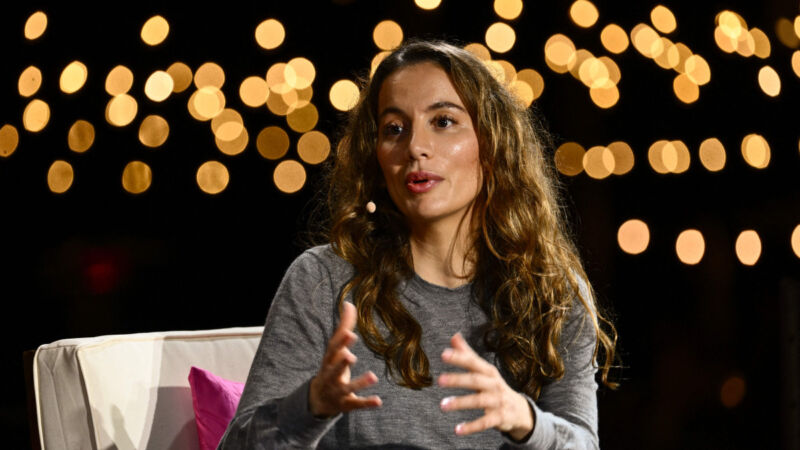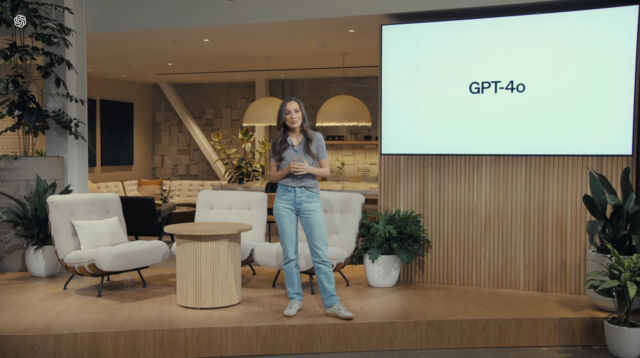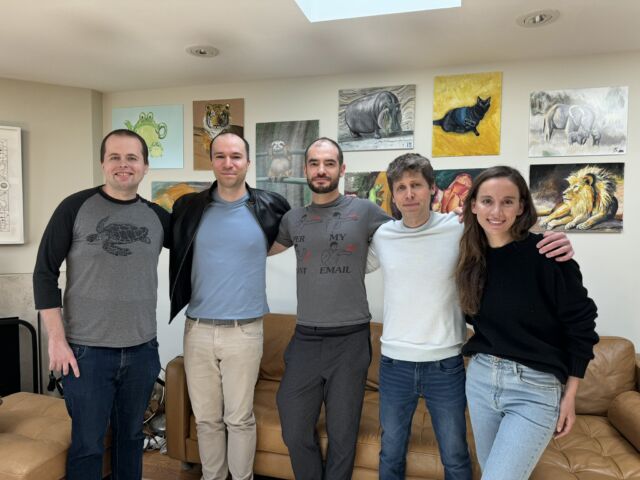

On Wednesday, OpenAI Chief Technical Officer Mira Murati announced she is leaving the company in a surprise resignation shared on the social network X. Murati joined OpenAI in 2018, serving for six-and-a-half years in various leadership roles, most recently as the CTO. Also on Wednesday, OpenAI Chief Research Officer Bob McGrew and VP of Research Barret Zoph resigned independently of each other, but perhaps precipitated by the Murati news, according to OpenAI CEO Sam Altman.
“After much reflection, I have made the difficult decision to leave OpenAI,” Murati wrote in a letter to the company’s staff. “While I’ll express my gratitude to many individuals in the coming days, I want to start by thanking Sam and Greg for their trust in me to lead the technical organization and for their support throughout the years,” she continued, referring to OpenAI CEO Sam Altman and President Greg Brockman. “There’s never an ideal time to step away from a place one cherishes, yet this moment feels right.”
At OpenAI, Murati was in charge of overseeing the company’s technical strategy and product development, including the launch and improvement of DALL-E, Codex, Sora, and the ChatGPT platform, while also leading research and safety teams. In public appearances, Murati often spoke about ethical considerations in AI development.
Murati, McGrew, and Zoph’s decision to leave the company comes when OpenAI finds itself at a major crossroads with a plan to alter its nonprofit structure. According to a Reuters report published on Wednesday, OpenAI is working to reorganize its core business into a for-profit benefit corporation, removing control from its nonprofit board. The move, which would give CEO Sam Altman a reported 7 percent equity in the company for the first time, could potentially value OpenAI at $150 billion.
Murati said her decision to leave was driven by a desire to “create the time and space to do my own exploration,” though she didn’t specify her future plans. McGrew stated in an X post, “It is time for me to take a break. There is no better capstone to my work here than shipping o1 to the world.” And Zoph tweeted, “Right now feels like a natural point for me to explore new opportunities outside of OpenAI. This is a personal decision based on how I want to evolve the next phase of my career.”
Proud of safety and research work

OpenAI
In her departure announcement, Murati highlighted recent developments at OpenAI, including innovations in speech-to-speech technology and the release of OpenAI o1. She cited what she considers the company’s progress in safety research and the development of “more robust, aligned, and steerable” AI models.
Altman replied to Murati’s tweet directly, expressing gratitude for Murati’s contributions and her personal support during challenging times, likely referring to the tumultuous period in November 2023 when the OpenAI board of directors briefly fired Altman from the company.
“It’s hard to overstate how much Mira has meant to OpenAI, our mission, and to us all personally,” he wrote. “I feel tremendous gratitude towards her for what she has helped us build and accomplish, but I most of all feel personal gratitude towards her for the support and love during all the hard times. I am excited for what she’ll do next.”
Not the first major players to leave

With Murati and the others’ exit, Altman remains one of the few long-standing senior leaders at OpenAI, which has seen significant shuffling in its upper ranks recently. In May 2024, former Chief Scientist Ilya Sutskever left to form his own company, Safe Superintelligence, Inc. (SSI), focused on building AI systems that far surpass humans in logical capabilities. That came just six months after Sutskever’s involvement in the temporary removal of Altman as CEO.
John Schulman, an OpenAI co-founder, departed earlier in 2024 to join rival AI firm Anthropic, and in August, OpenAI President Greg Brockman announced he would be taking a temporary sabbatical until the end of the year.
The leadership shuffles have raised questions among critics about the internal dynamics at OpenAI under Altman and the state of OpenAI’s future research path, which has been aiming toward creating artificial general intelligence (AGI)—a hypothetical technology that could potentially perform human-level intellectual work.
“Question: why would key people leave an organization right before it was just about to develop AGI?” asked xAI developer Benjamin De Kraker in a post on X just after Murati’s announcement. “This is kind of like quitting NASA months before the moon landing,” he wrote in a reply. “Wouldn’t you wanna stick around and be part of it?”
Murati’s departure leaves questions about who will step into her role, but it already appears some of her responsibilities may be split into multiple new roles. In a second announcement posted later on Wednesday, Altman wrote that Mark Chen would become SVP of Research and Josh Achiam would become head of Mission Alignment, with no news of who would be the new CTO. For now, it appears OpenAI is poised to adopt a corporate structure that seems to be slowly consolidating more power directly under Altman.
In his announcement, Altman said that Chen and Achiam, along with other members of technical staff, would now report directly to him. “I have over the past year or so spent most of my time on the non-technical parts of our organization,” Altman wrote. “I am now looking forward to spending most of my time on the technical and product parts of the company.”
This article was updated on September 26, 2024, at 8:43 am to add news about Bob McGrew and Barret Zoph’s resignations.